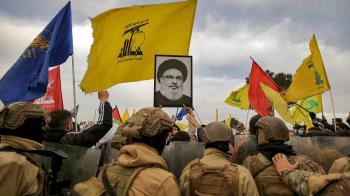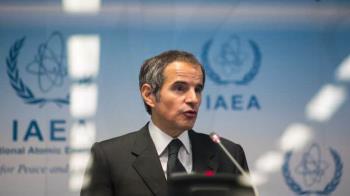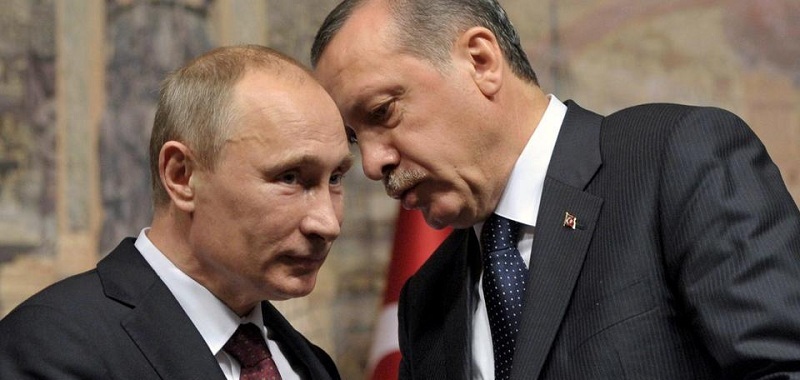Alwaght- These days, Turkey is involved in wide-ranging diplomatic toil across the region, with its close cooperation with Russia and Iran being in the heart of focus of the political and media circles. Some sides have deemed the Ankara decision to buy S-400 air defense systems from Moscow as a long step by the Turkish leaders towards cultivating warmer relationship with Russia and a message to the West, topped by the US.
However, Ali Ghaemmaghami, a Turkish affairs expert, believes that despite the fact that Ankara is engaged in broad partnership with Russia, it remains doing the bigger political, military, and security cooperation with the West, and specifically the US.
Talking in an interview to Alwaght, the Iranian expert maintained that the Turkish-Russian cooperation is overarchingly economic. The volume of the Turkish trade with the US is nearly $15 billion, while this amount doubles when it comes to Turkey’s exchange with Russia. Before the crisis between Ankara and Moscow in 2015- marked by the Turkish air force jets' shooting down of a Russian bomber en route to the air base after an anti-terror bombing mission in Syria- the two Moscow and Ankara aimed at $80 billion in bilateral investment projects. These figures signal that the Turkish trade with Russia surpasses trade with the US.
But Ankara is more engaged in military and security relations with Washington than with Moscow. Recently, Turkey has bought 11 audio surveillance equipment, along with a pack of F-35 fighter jets from the US. Turkey is, additionally, a NATO member and a strategic ally to the US, unlike its relations with Russia that are limited to economy and energy.
Having his say on the S-400 missile shield purchase by Turkey, Mr Ghaemmaghami said that the Russian officials noted that the battery delivery will not take place before the coming 2 years. On the other side, Ankara has said that the deployment of the Russian air defense will address threats coming from the West Asia region, sending a veiled message that the Turkish leaders want to cope with regional, and not Western, dangers.
Commenting more on the anti-aircraft and ballistic missile systems of Turkey, the Iranian expert told Alwaght that Ankara intends to put strains on the West and the US in particular to force them into providing it with ballistic missiles technology. The West, especially Europe, rejected the Turkish calls for the technology transition, something drew Turkey’s response into the form of pressures through buying the Russian air defense systems. Turkey’s network of air defenses outstrips the potential S-400 coverage capabilities, as the Turkish skies are thoroughly protected by NATO radars as well as the American navy’s vessels positioned in the Mediterranean, not to mention the fact that the whole Turkey is covered by the NATO nuclear deterrence umbrella.
Ghaemmaghami added that despite the visit of the senior political and military officials of Turkey to Iran and Russia, Ankara keeps its approach in tune with the West. On the other side, the Turkish Foreign Minister Mevlut Cavusoglu commented on the reasons his country struck a deal with Russia for S-400, saying that before the deal, Turkey placed an application for similar system from Europe but the latter refused, giving the Turks the excuse to seek Russian batteries as alternative. Moreover, upon delivery, the S-400 systems will be set up in eastern Turkey, which means no threats are posed to the West. Furthermore, when the US criticized Turkey for buying systems that will not fit into the Turkish-based NATO air defense architecture, the Turkish authorities in response maintained that the Russian version will be operated independently, and that they had no intention of integrating the S-400s with the NATO network of batteries, hinting that Ankara will continue joint work with the NATO simultaneously.
Mr Ghaemmaghami also touched on recent tensions between the US and Turkey that that followed arrest of the American Istanbul consulate personnel by the Turkish police, noting that the recent row over visa ban for the two countries' citizens remained restricted to this diplomatic area. After escalation of tensions, Pentagon spokesman Colonel Robert Manning said the diplomatic dispute did not affect the US military operations out of Turkey, and that the American military servicemen will, as usual, receive visas.
Mr Ghaemmaghami also spoke about the Western sanctions against Russia, saying that Russia is now under sanctions of the US, Germany, and the France, though Berlin wants to reconsider its restrictions. Turkey, he said, is also a partner to the West’s anti-Russian sanctions. For example, Erdogan during his last Monday visit of Ukraine said that he supported Kiev over Crimea Peninsula dispute and Turkey will not recognize annexation of the Crimea by Russia. On the other side, Russia grows concerns about the Turkic citizens' separatism in some of its autonomous republics like Tatarstan that provide proper pressing instruments for Ankara against Moscow.
The expert also touched on the recent Turkish cooperation with Russia and Iran over Syria crisis. He said that it was only after recapture of northern Syrian province of Aleppo that Turkey decided to cooperate with Russia and Iran and help establish the Astana peace process. Therefore, in many cases Turkey’s strategic and political approach towards Russia has not changed, with every now and then Ankara leaders reiterating themselves as strategic allies to NATO.
He also referred to the Ankara closeness to Moscow in response to its EU accession bid rejection by the bloc, maintaining that Erdogan government was still struggling to save alliance with NATO, and even he did not allow his dreams of EU membership to die. Turkey has repeatedly urged the 28-nation union to discuss the initial 30 chapters of membership, but the Europeans suspended negotiating the bid. However, Ankara has so far declined to withdraw its bid in protest.
The expert enumerated other reasons standing behind the Turkish moving towards Iran and Russia, including failure of its Arab-Islamic NATO project that was pursued in association with Saudi Arabia, the US support for the Kurdish militants in northern Syria whom Ankara assume terrorists, as well as the Iraqi Kurdistan independence referendum held last month. For conclusion, Mr Ghaemmaghami assured that Turkey will maintain its Western framework.



























